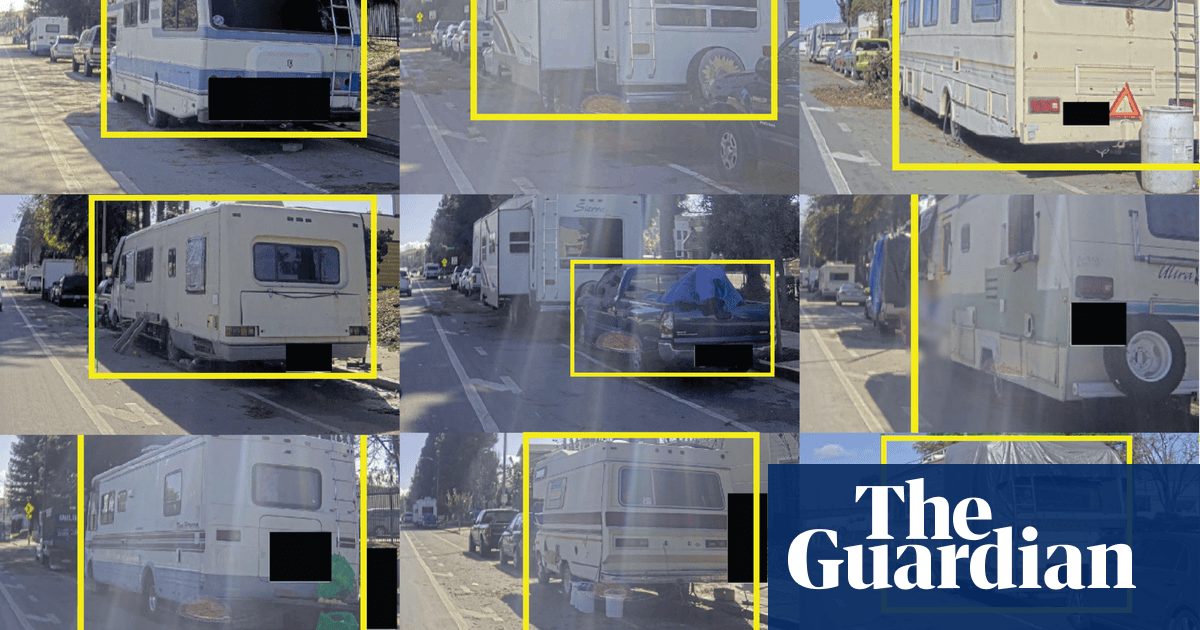Last July, San Jose issued an open invitation to technology companies to mount cameras on a municipal vehicle that began periodically driving through the city’s district 10 in December, collecting footage of the streets and public spaces. The images are fed into computer vision software and used to train the companies’ algorithms to detect the unwanted objects, according to interviews and documents the Guardian obtained through public records requests.



This is the best summary I could come up with:
For the last several months, a city at the heart of Silicon Valley has been training artificial intelligence to recognize tents and cars with people living inside in what experts believe is the first experiment of its kind in the United States.
Last July, San Jose issued an open invitation to technology companies to mount cameras on a municipal vehicle that began periodically driving through the city’s district 10 in December, collecting footage of the streets and public spaces.
There’s no set end date for the pilot phase of the project, Tawfik said in an interview, and as the models improve he believes the target objects could expand to include lost cats and dogs, parking violations and overgrown trees.
City documents state that, in addition to accuracy, one of the main metrics the AI systems will be assessed on is their ability to preserve the privacy of people captured on camera – for example, by blurring faces and license plates.
The group, made up of dozens of current and formerly unhoused people, has recently been fighting a policy proposed last August by the San Jose mayor, Matt Mahan, that would allow police to tow and impound lived-in vehicles near schools.
In addition to providing a training ground for new algorithms, San Jose’s position as a national leader on government procurement of technology means that its experiment with surveilling encampments could influence whether and how other cities adopt similar detection systems.
The original article contains 1,487 words, the summary contains 240 words. Saved 84%. I’m a bot and I’m open source!
good bot